THE current labour-driven production challenges facing red meat processors were laid out in graphic detail during a beef and lamb supplier gathering hosted by JBS Southern Division in Melbourne a week ago.
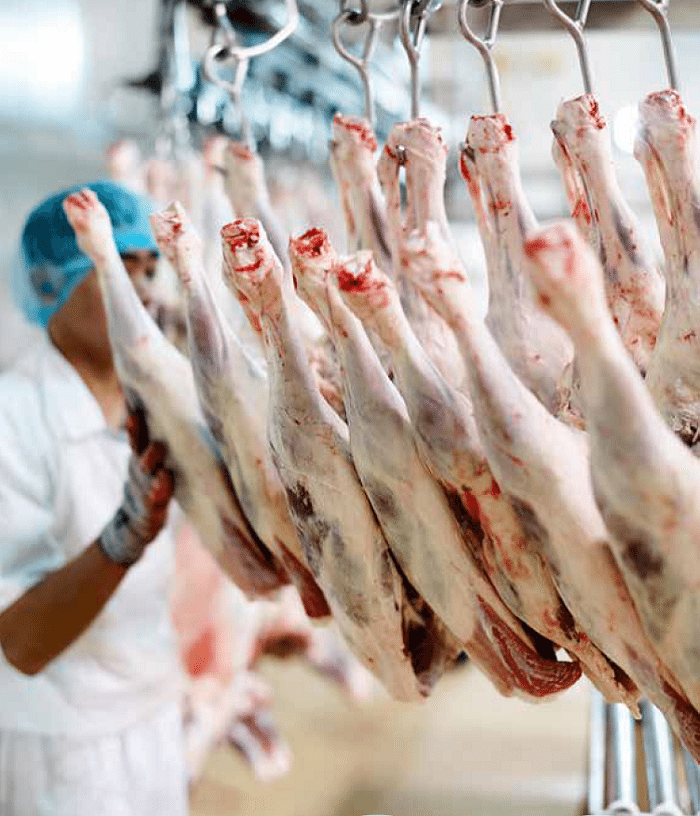 JBS hosted more than 500 livestock suppliers and other stakeholders to its Great Southern farm assured grassfed brand program – the largest brand venture of its type in the world – including a conference and supplier awards dinner (see earlier reports).
JBS hosted more than 500 livestock suppliers and other stakeholders to its Great Southern farm assured grassfed brand program – the largest brand venture of its type in the world – including a conference and supplier awards dinner (see earlier reports).
In a frank and open address, JBS Southern operations manager Sean Naden and chief operating officer Sam McConnell outlined the company’s labour challenges to its livestock suppliers.
The problems faced by JBS are common right across the Australian red meat processing industry this year.
Big investments in shoring up labour
Mr McConnell said his business had been ‘luckier than some.’
“Two and a half years ago, we started investing close to $3 million into an operational plan around underpinning labour and recruitment and supporting our labour force through pastoral care*,” he said.
* Wikipedia describes ‘pastoral care’ is a model of emotional, social and spiritual support that can be found in all cultures and traditions. The term is considered inclusive of distinctly non-religious forms of support, as well as support for people from religious communities.
“It was a risk at the time, because we weren’t sure how international markets and consumer demand would go, in the face of COVID,” Mr McConnell said.
“But I didn’t think we would ever be dealing with (leasing) motels and running mini-buses for accommodation and transport,” he said.
As documented earlier in Beef Central articles, buying/leasing and maintaining accommodation for overseas workers is now a reasonably common practise within the meat processing industry.
Around all JBS Southern’s sites, stretching from Bordertown in the west to Brooklyn, and Scone in the east and Longford in the south, the company now manages a significant amount of accommodation, used by PALM scheme* labourers.
* The Pacific Australia Labour Mobility (PALM) scheme allows eligible Australian businesses to hire workers from nine Pacific islands and Timor-Leste, when there are not enough local workers available.
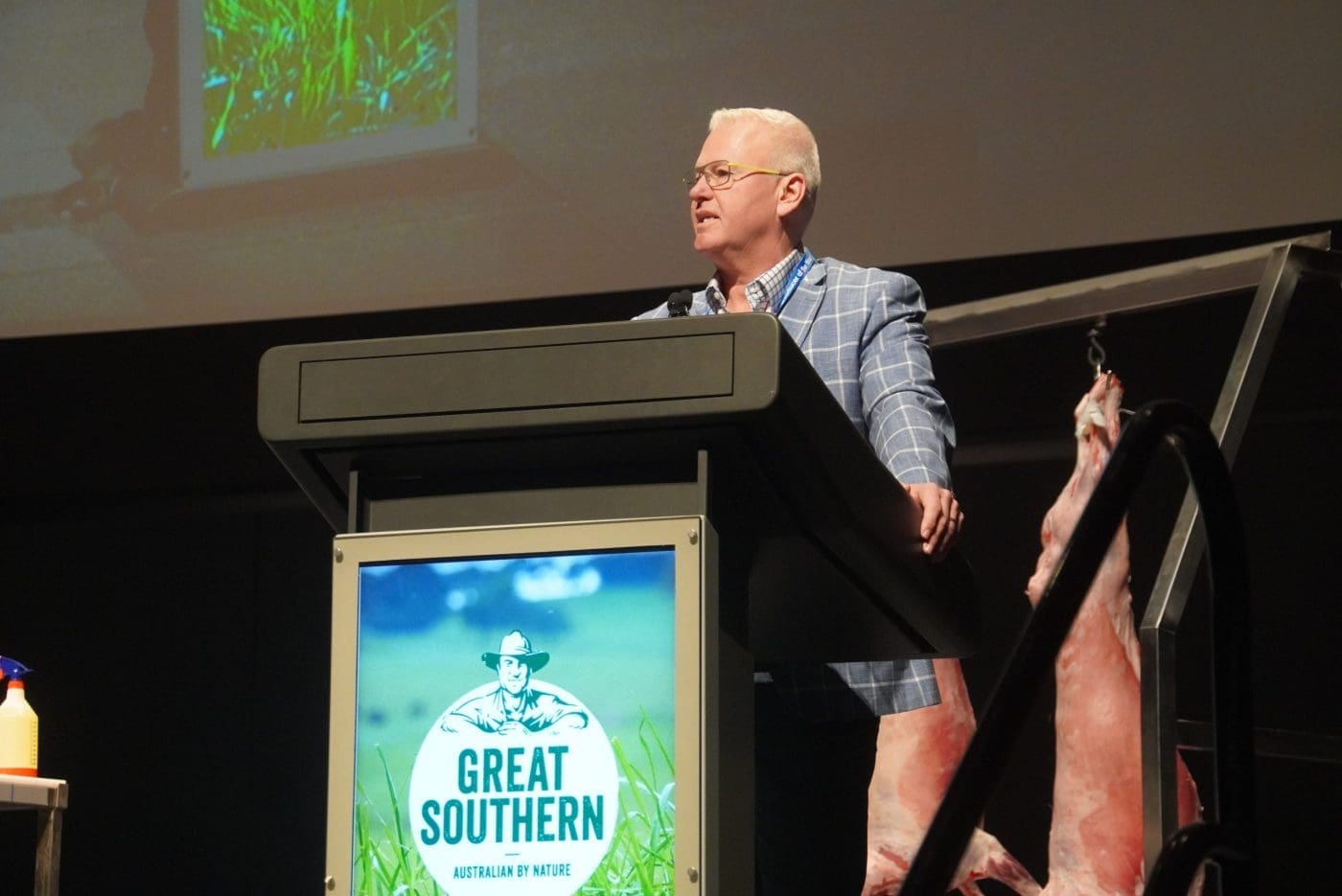
JBS Southern COO, Sam McConnell
JBS’s Southern Division now employs 750 PALM scheme workers across its Victorian, Tasmanian, South Australian and NSW operations, with the majority coming from the Solomon Islands.
“They are wonderful people,” Mr McConnell said. “They are people who just want to work and have a good life – make some money here and send it back to put clothes on their children’s backs. That makes us proud,” he told the Great Southern supplier gathering.
“There’s a lot going on behind the scenes in these communities – English speaking classes for some of the children with language difficulties, to sporting activities and swimming clubs.
“We’re a big part of the local community, and often the largest employer in the area. But being ‘large’ does not always mean being ‘good’ – so we have to make sure we’re doing what we can do – investing in our local communities.”
Low staff turnover
Despite the challenges, JBS Southern is enjoying very low rates of staff turnover (both overseas labour and domestic), based on industry standards.
While rates of annual staff turnover in processing as high as 60pc are recorded, JBS Southern’s turnover rate was only around 20pc, Mr McConnell said.
“That says a lot about people and culture, and how you look after staff,” he said.
“To be at that level of turnover during this critically difficult time in employment is a credit to the team.”
Labour big challenge since COVID
JBS Southern operations manager Sean Naden told the gathering that like all processors, labour had been a huge challenge for the company, since pre-COVID.
“Prior to COVID, when livestock supply was right we could add a second plant staffing shift in eight weeks if we wanted to, employing local people,” Mr Naden said.
“But if a processor wanted to do that now (as livestock numbers continue to grow) there are multiple challenges stopping that happening.”
The $3 million JBS Southern had invested in an operational plan around labour, recruitment and staff support two and a half years ago had paid big dividends, Mr Naden said.
Of the 3000 staff JBS Southern now employs, 750 are PALM scheme people from overseas.
“We did not have that offshore labour option pre COVID,” Mr Naden said.
“But without it today, we would be on our knees. It’s hard to get a local recruit in any of the rural areas in which our plants operate – Longford, Bordertown, Cobram or Scone – there is already low unemployment (less than 2pc) and no housing available.”
“So we have had to build the position we are in today through some pretty intense planning and commitment from the people side. We now lease houses and motels, run buses and provide a range of pastoral care. It’s just a completely different ball-game.”
At a plant like Cobram (re-opened last year by JBS after a closure during the period of low livestock supply) 140 of the 240 staff are now Pacific labour.
“There is no way we would have been able to re-start Cobram without it,” Mr Naden said.
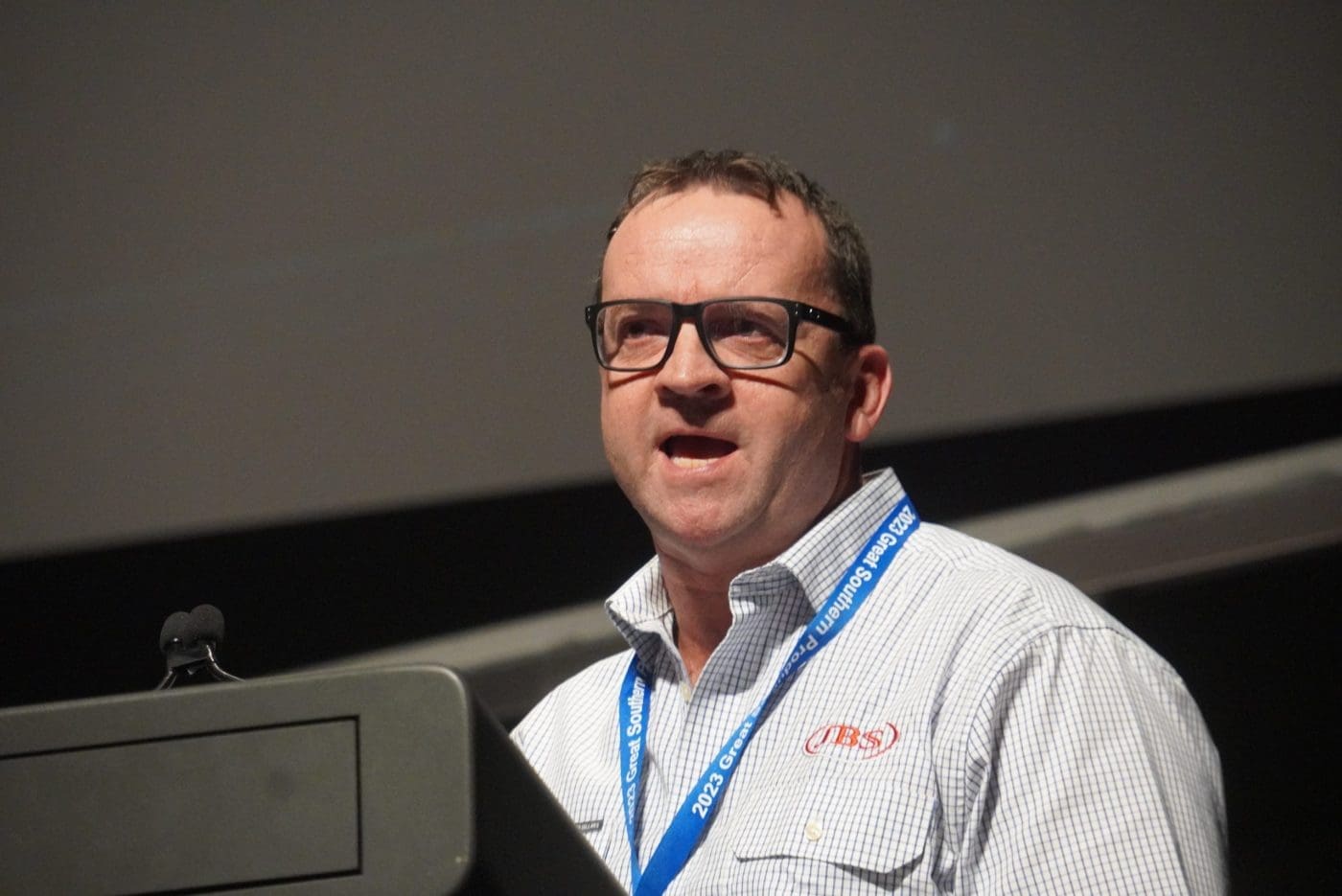
JBS Southern operations manager Sean Naden
Meeting the supply challenge
He said JBS was well aware that larger numbers of slaughter cattle and sheep ‘were coming,’ which would further stretch current labour resources.
“We’re trying to build for greater numbers, based on those forecasts,” he said, “but it takes considerable labour to achieve that.”
“At some sites it will be a challenge to be able to move to double-shifts, because clearly there is neither the housing, nor the people in regional areas to do it. But we are looking at strategies like extending shifts and working Saturdays wherever we can.
“But that being said, we are looking at strategies and labour options to have the people available to process the livestock.
“While I think we (JBS) are in a better position than many of our competitors, it’s going to be a discussion that we (JBS and its livestock suppliers) face together, as an industry.”
“But we are doing everything we can, from a ‘make’ perspective, to be as ready as we can.”
Dramatic cultural change
Further north at JBS’s Scone facility in NSW (previously known as Primo), plant manager James Turner said he now had 140 Solomon Islanders within his workforce.
Mr Turner is a gregarious former NZ Maori boner who worked his way up through the ranks to become plant manager at JBS Scone.
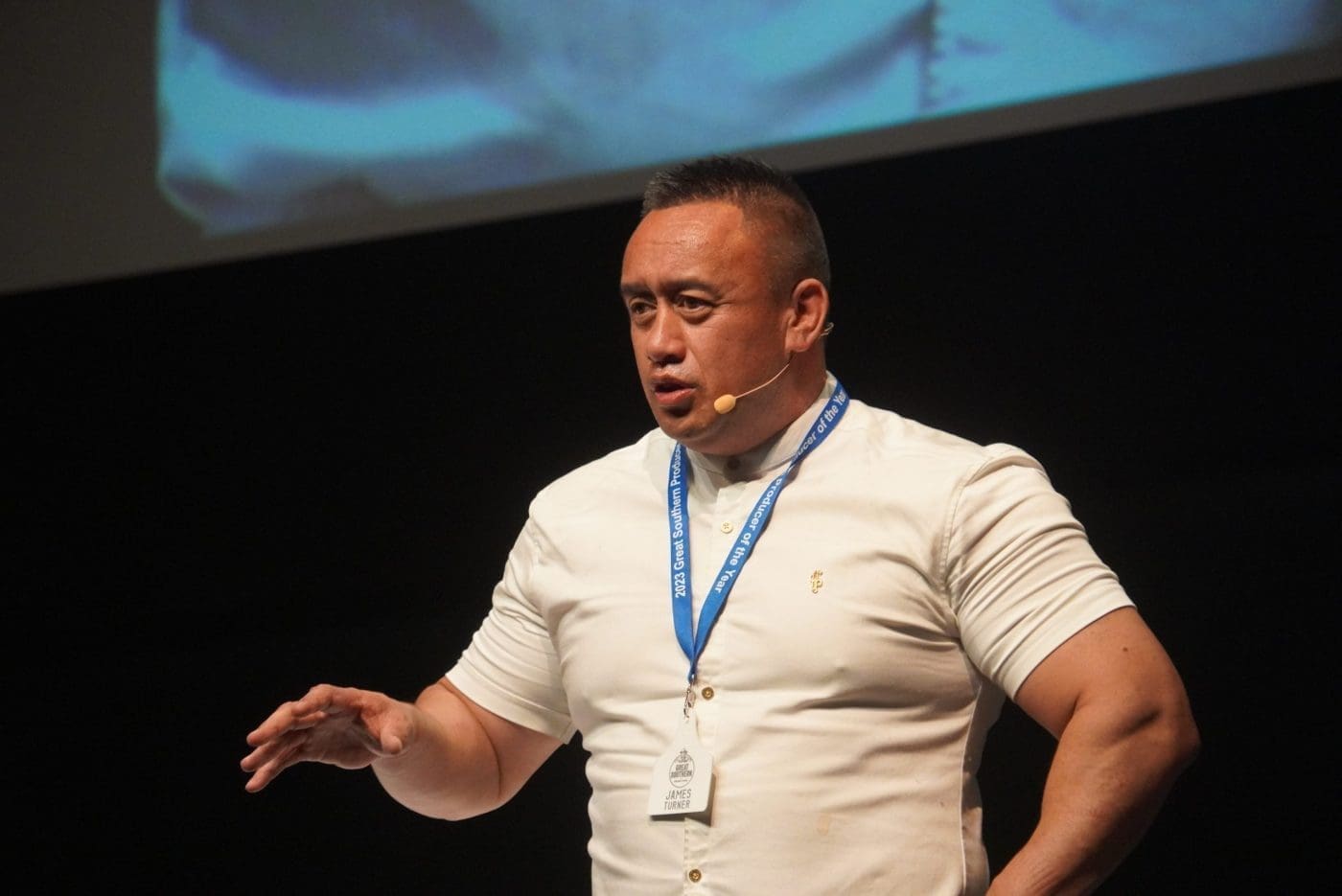
JBS Scone plant manager James Turner
‘Scone was one of the first processing facilities to get Solomon Islanders four years ago,” he said. “The first 50 that turned up are still there.”
“When the PALM scheme first went to the Solomons to interview potential candidates, there were incredible stories of young men travelling for two days by canoe to get to an interview. Others walked 40km to get to an interview site,” he said.
“These boys are really good – skilful and energetic. They have integrated into the community, and even won the local soccer competition for the past two years,” Mr Turner said.
“Under the PALM scheme, they have to return home after four years, but we have plans how we can get them back again, as soon as the system allows.”
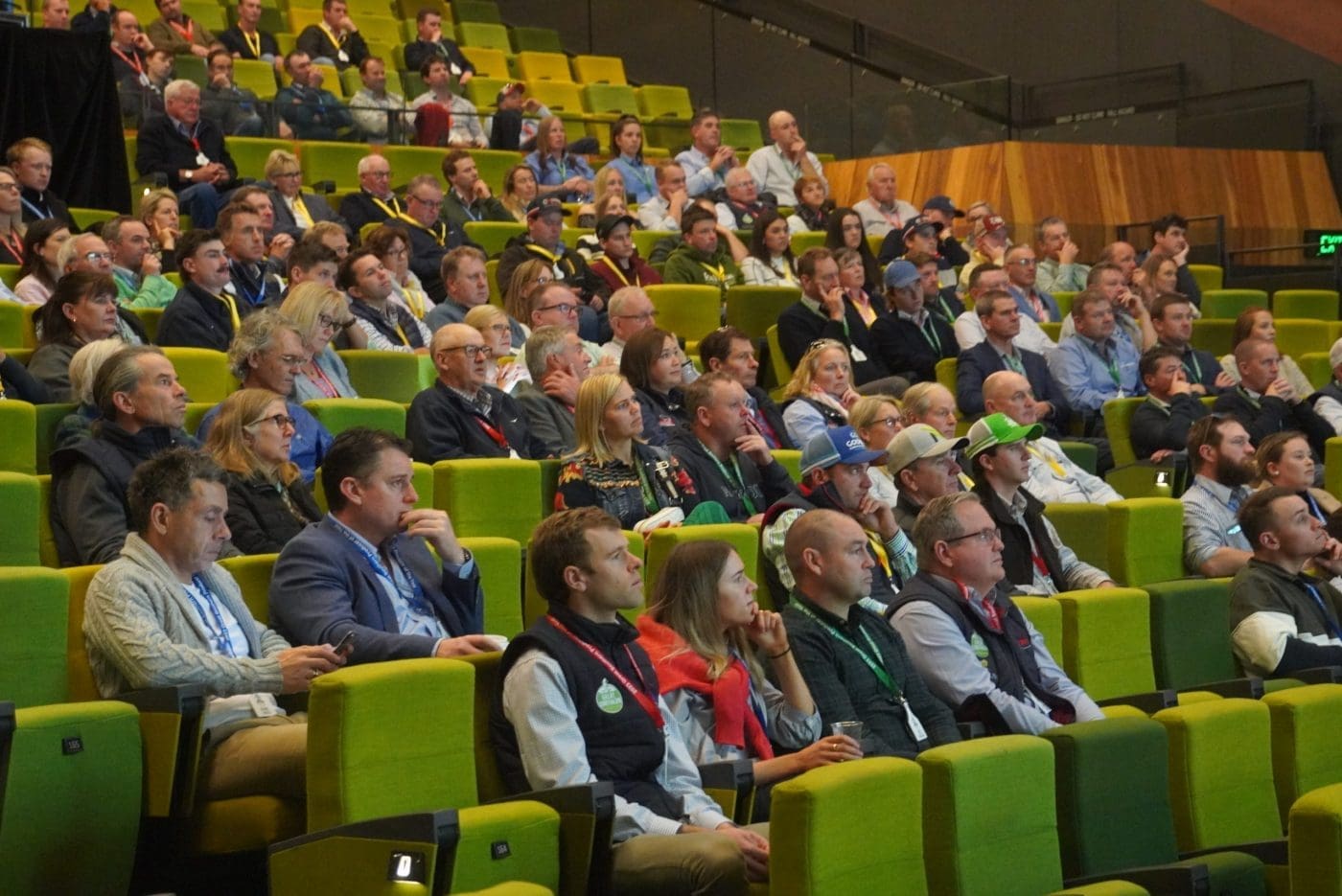
Part of the large livestock supplier audience attending JBS’s Great Southern event in Melbourne

HAVE YOUR SAY